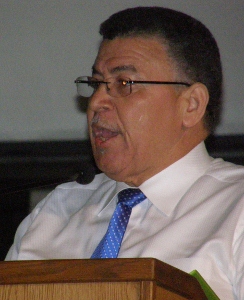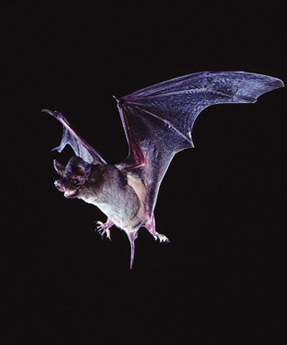Archive for April 16th, 2012

Political meetings cost public purse $21K
 (CNS): Three public meetings hosted by the premier and the UDP MLAs billed as updates on the port and projects but which many described as political rallies cost the public purse close to $22,000. A breakdown released by the ministry following an FOI request shows that the meetings which took place in George Town, East End and Bodden Town were funded by the public purse and not the UDP. Although the meetings were advertised as an opportunity for the public to hear the latest on government’s proposed projects, the meetings focused heavily on government’s critics and opponents. Very little new information was revealed about the plans for the George Town cruise port or the other major projects at any of the gatherings.
(CNS): Three public meetings hosted by the premier and the UDP MLAs billed as updates on the port and projects but which many described as political rallies cost the public purse close to $22,000. A breakdown released by the ministry following an FOI request shows that the meetings which took place in George Town, East End and Bodden Town were funded by the public purse and not the UDP. Although the meetings were advertised as an opportunity for the public to hear the latest on government’s proposed projects, the meetings focused heavily on government’s critics and opponents. Very little new information was revealed about the plans for the George Town cruise port or the other major projects at any of the gatherings.
During the meeting in East End, which cost government just over $5000, McKeeva Bush endorsed John McLean Jr, who plans to run in the district as an independent at the next general election, as the UDP’s preferred candidate. Bush also stirred up significant controversy when he said that he would be using money given to government by Dart under the ForCayman Investment Alliance deal to help McLean implement some local projects in the district, bypassing the East End incumbent and opposition MLA, Arden McLean.
At the Bodden Town meeting, the most expensive of all at over $9000 as government spent more than $6000 on advertising, a demonstration by campaigners opposing the relocation of Grand Cayman’s landfill to the district saw all of the MLAs, in particular the backbench UDP members, attacking the protestors from the podium but they gave no new details about the plans for the proposed waste-management project.
The first of the meetings, which took place in George Town and cost over $7000, also saw politics rather than the port take centre stage. Bush spoke for more than an hour and a half and made it clear that recent indications that he may be getting tired of the political fray did not mean he was going anywhere. Although wanting to see more young people step into politics, he said he was continuing on and would run in the next election. The speech heavily condemned his opponents, both in the legislature and in the community, as he accused the agitators of endangering the country.
All three meetings were seen as highly political, bringing into focus the argument raised by Bush himself when he was in opposition about governments spending public money on promoting themselves while in office and the fine line between a public update by government and a party political rally. During the previous government Bush criticised the then PPM administration for spending money on televised press briefings.
See FOI release and the breakdown of the public meeting costs below.
See advertisement promoting the George Town meeting here.

Bats provide economic and ecological services
 (CNS): New environmental research has revealed the significant economic value of bats to the US cotton business. In the summer months, the Brazilian free-tailed bat migrates from its habitat in central Mexico to breeding grounds in the north of the country and south western areas of the United States, where it feeds on pests. The study found that this natural form of pest control has an economic value of US$740,000 taking into account the value of cotton crops that would have been lost in the absence of bats and the savings on pesticides. The UN has also emphasized the value of ecological services bats provide around the world and although environmentalists here have been pushing this message for several years all species of bats in Cayman remain unprotected.
(CNS): New environmental research has revealed the significant economic value of bats to the US cotton business. In the summer months, the Brazilian free-tailed bat migrates from its habitat in central Mexico to breeding grounds in the north of the country and south western areas of the United States, where it feeds on pests. The study found that this natural form of pest control has an economic value of US$740,000 taking into account the value of cotton crops that would have been lost in the absence of bats and the savings on pesticides. The UN has also emphasized the value of ecological services bats provide around the world and although environmentalists here have been pushing this message for several years all species of bats in Cayman remain unprotected.
"Bats perform an essential role as an agent of natural pest control by generating economic, social and environmental benefits in a Green Economy," said the Conservation of Migratory Species of Wild Animals (UNEP/CMS) Acting Executive Secretary Elizabeth Maruma Mrema.
Migratory species including bats can provide biological solutions to increase economic gains while reducing harm to the environment.
At the forthcoming sustainable development conference in Brazil, Rio+20 in June the Brazilian free-tailed bats (Tadaridabrasiliensis) will be one of the subjects that demonstrate how these flying mammals can reduce highly destructive agricultural pests.
As predators, bats are very efficient at eliminating pests over a wide area. A single female Brazilian free-tailed bat consumes eight grams of adult insects every night, which is about two thirds of her body weight. Up to 20 adult bollworm moths are eaten by a single bat each night.
Rodrigo Medellín, co-author of the study and Ambassador of the Year of the Bat said: "We must strive to conserve bat habitats worldwide for the sake of economic benefits alone. In addition to their role as a pest control, bats provide key services such as seed dispersal and pollination of economically and ecologically important plants. The educational initiative of the Convention on the Conservation of Migratory Species of Wild Animals is an essential tool to convey this crucial message."